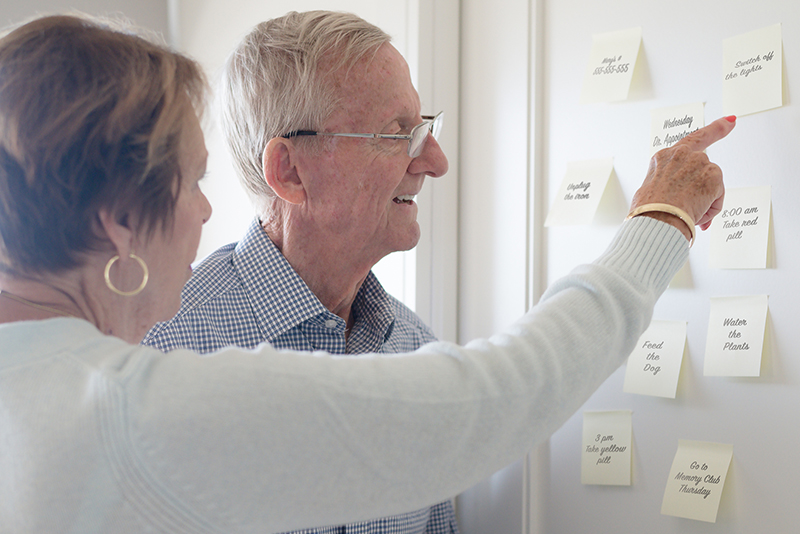Six Rs to Improve Dementia Care


Use these six essential tips to improve dementia care for someone you love.
Caring for someone with dementia is one of the most meaningful yet challenging roles you can take on. It’s important to remind yourself regularly: You are doing your best. You are making a difference. A little self-affirmation goes a long way, but there’s more to consider when caregiving gets tough. Enter the Six Rs of dementia care—a framework designed to help improve dementia care and better manage the complexities of the disease.
What Are the Six Rs of Dementia Care?
The Six Rs offer a practical, compassionate approach to navigating difficult dementia-related behaviors. By following these steps, you can create a more peaceful, supportive environment:
- Reassure
Dementia can make familiar routines and environments suddenly feel intimidating or strange. Loud noises, changes in lighting, unfamiliar visitors, or even hallucinations can trigger anxiety. Offering words of comfort like, “You’re safe. I’m here with you,” can provide reassurance and help ease fears. Your calm presence is often the most powerful reassurance of all. - Reassess
Agitation or fear often has a root cause. Is the person hungry, thirsty, or uncomfortable? Could they be in pain? By looking beyond the behavior itself, you may uncover a simple solution. If physical causes aren’t apparent, consult their doctor for further insights. Sometimes small adjustments, like ensuring they’re dressed comfortably or have eaten, can prevent future episodes. - Reconsider
When dementia-related behaviors arise, it’s easy to feel frustrated or overwhelmed. However, remembering that these actions aren’t intentional is key. They stem from changes in the brain caused by the disease. Practicing empathy and stepping into their perspective can help reduce your stress while fostering a more compassionate response. - Redirect
Sometimes, a change in focus or environment can work wonders. For example, if the sound of the dishwasher is upsetting the person, moving them to another room to do a calming activity—such as coloring or listening to soothing music—may restore their sense of calm. Creativity and flexibility are your best tools for redirection. - Relax
Agitation can be contagious. If your body language or tone conveys stress, your family member is likely to mirror those emotions. Take a deep breath, relax your posture, and speak in a calm, soothing voice. Beyond the immediate moment, ensure you’re prioritizing self-care. Time away from caregiving is essential to recharge and maintain your own emotional well-being. - Review
Once the situation is resolved, reflect on what worked and what didn’t. Could a particular coping mechanism be used in the future? Journaling these experiences can provide a valuable record to guide you in managing similar scenarios.
Caring for Yourself While Caring for Someone With Dementia
Providing care for someone with dementia is a labor of love, but it can also take a significant emotional and physical toll. It’s crucial to carve out time for yourself—whether that means pursuing hobbies, spending time with friends, or simply taking a break to rest. Staying socially connected and engaging in activities that rejuvenate you will help you approach caregiving with renewed energy and focus.
Let Us Lend a Hand
If stepping away from your caregiving responsibilities feels impossible, Hired Hands Homecare is here to help. Our compassionate team provides in-home dementia care and support, giving you the chance to rest while knowing the person you love is in capable hands. We can offer personalized care strategies, companionship, and a listening ear for you and your family.
Contact us at (866) 940-4343 to learn more about how we can help someone you love in Petaluma, Santa Rosa, San Rafael, or throughout the Bay Area.








Leave a Reply